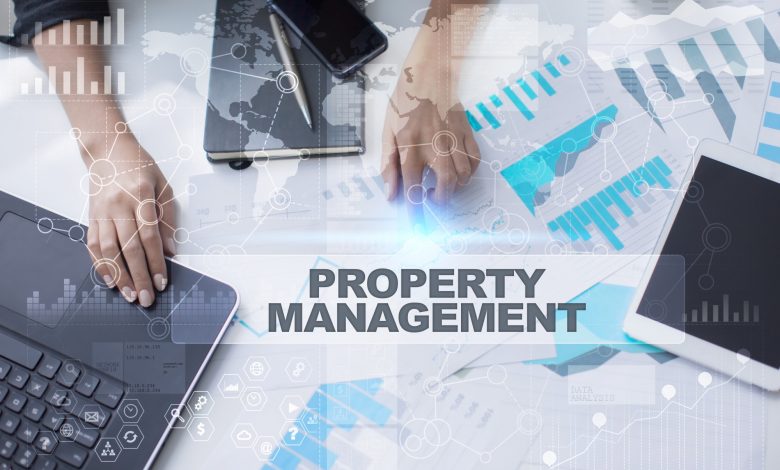Top 10 Best Property Management Software of 2023

Having many rental properties might be a significant investment, but managing them can be a lot of work. Landlords and property managers are responsible for tenant acquisition and screening, rent collection, property upkeep, and financial reporting. In a fortunate turn of events, widespread property management software exists to facilitate this process.
The best software for this purpose aids landlords and property managers in advertising available units, screening prospective renters, collecting rent, and handling maintenance needs. It also functions as financial and accounting software for managing rental properties.
Read on to discover why the following programs are among the best property management software on the market today and how they may help you streamline your property management operations.
How We Chose the Best Software for Managing Rental Properties
When we looked at property management software for this guide, we considered several things. Property management software should help with every step of the process. We chose ones that help property managers and landlords advertise empty properties, screen potential tenants and manage current ones, keep track of finances, and talk to property owners.
Scalability was just as important as the features. We compiled a set of property management software solutions with a range of features and costs to accommodate the needs of landlords of various sizes, from those with just a few units to those with thousands.
Lastly, since property managers use various online tools to help with marketing, tenant screening, and other tasks, we chose software that can work with common online sites that property managers use.
Best Property Management Software
Each property management software below offers all services. Others are designed for small real estate management organizations. Property managers can discover a system that fits their portfolio in this array, regardless of property type or unit count.
#1) Buildium
Buildium is the best property management software because it is well put together. There are tools for advertising, getting applications, and checking out potential tenants. There are also tools for managing tenants once they move in, like a way for them to pay their rent automatically and a way to handle maintenance requests.
Property managers can also use the software to manage finances and look at how well the finances are doing. They can also set up individual portals to talk with tenants, property owners, and HOA board members.
Specifications
- Price per unit: N/A
- Minimum monthly fee: $50 to $460
- Max number of units: 5,000
Pros
- Does a lot of different things.
- Interface and design that is easy to use
- Service levels make it suitable for a wide range of business sizes.
Cons
- It can take a lot of work to get in touch with customer service.
#2) TurboTenant
There are many free options for property management software, but most are only accessible for a certain amount of time or a small number of properties. TurboTenant is different from the rest. The basic service on this platform is free for property managers.
Instead, TurboTenant’s pricing is geared toward tenants, who pay a fee when they want to rent a unit, and a 3.5 percent credit card fee when they pay their rent. TurboTenant also lets renters choose to get renters insurance if they want to.
Specifications
- Price per unit: There is no monthly fee, but some services are charged a la carte.
- Fee per month: $0 to $4.92
- Max number of units: 5,000
Pros
- Completely free management software
- Service from start to finish
- Helpful customer service
Cons
- Fees may be different from what renters want.
- It needs features that property managers might want.
#3) AppFolio
AppFolio may have the complete set of services of any property management software because it has many features and functions. Its high price makes it impractical for those with only a few homes, but it’s ideal for those with a sizable portfolio.
AppFolio has several advanced features you won’t find in other property management software. For example, it lets you collect rent, make maintenance requests, sign leases online, and use marketing tools.
Specifications
- Price per unit: $1.40 to $3.00
- Minimum monthly fee: $280 to $1,500
- Max number of units: 20,000
Pros
- Ability to make websites for real estate
- Manage a lot of different kinds of properties at once
- High-priced leads to finding tenants
Cons
- Not suitable for people who have less than 50 units.
#4) Rent Manager
When new property management software is implemented, it can often take property managers weeks to figure out how to use it. This is what makes the Rent Manager stand out. Compared to other property management software, the learning curve for this one is far lower, thanks to the product’s simplicity in installation and operation. However, it does so while covering a great deal of ground.
Specifications
- Price per unit: $1 to $2.25
- Minimum monthly fee: $200 to $450
- Max number of units: 50,000+
Pros
- User-friendly interface and design
- A lot of things
- With three price levels, it can meet a wide range of needs.
Cons
- The minimum monthly fee may be too high if you only have a few properties.
#5) Landlord Studio
Most property management software is made for people in charge of dozens or even hundreds of properties and costs at least hundreds of dollars per month to use. Landlord Studio stands out because it has software for people who only need to manage one property.
The software is also made for people who are not tech-savvy. It has an easy-to-use interface and lets landlords screen tenants, link bank accounts and tax information to property information, send rent reminders, and make reports on income and expenses. Some tasks, like scheduling maintenance and inspections, can also be done automatically by the software.
Specifications
- Price per unit: $5.99 to $29.99 (for annual billing)
- Minimum monthly fee: $5.99 to $29.99 (for annual billing)
- Max number of units: N/A
Pros
- People who manage a small number of properties can get affordable prices.
- Interface that’s easy to use
- Wide variety of features
Cons
- More advanced than it could be.
#6) MRI Software
Managing commercial properties like large apartment complexes adds complexity requiring software with more advanced features. MRI Software has advanced features that commercial real estate firms may come to rely on. For example, it can collect rent, renew leases, handle maintenance requests, and talk to tenants. These are all tools that many property management software programs offer.
These have a compelling reports feature, which is essential for keeping track of how a portfolio of properties is doing. MRI also has a lot of market research and data, which is essential for finding tenants and setting prices. MRI works with many residential properties, such as condos and apartment complexes, multi-family homes, public and low-cost housing, and more.
Specifications
- Price per unit: N/A (call for pricing)
- Minimum fee per month: $120
- No maximum units: N/A
Pros
- Features that make reporting better
- Access to a lot of data from market research
- works with a wide range of property types
Cons
- Individual landlords can’t use it.
#7) Propertyware
Propertyware has the features that landlords of single-family homes need, but it doesn’t have the complicated features or high cost of commercial property management software. The interface is easy to use and has the features that property managers for single-family homes usually need. With just a few clicks, landlords can list their empty properties on multiple online sites, keep track of leads and screen potential tenants, collect rent, and get and handle repair requests.
The software also lets owners and tenants set up their portals. Propertyware has tiered pricing that ranges from $1 to $2 per unit, depending on the features the property manager wants. Propertyware has a minimum monthly fee, so it works best for businesses that manage at least 250 homes.
Specifications
- Price per unit: $1 to $2
- Minimum monthly fee: $250 to $450
- Max number of units: N/A
Pros
- Explicitly designed for single-family homes
- Price breaks so that users only pay for the features they will use
- Easy for people to use
Cons
- The high minimum fee every month
#8) Yardi Breeze
Yardi Breeze is the best cloud-based property management software on the market because it has the most features. With Yardi Breeze, property managers can collect rent, get rental applications, handle maintenance requests, offer renters insurance, and market properties. There is also a feature for managing money called “Account.” But Yardi Breeze doesn’t have a mobile app, which is strange since it works in the cloud.
Yardi Breeze has two price levels: Breeze and Breeze Premier. Its residential and commercial options have lower minimum monthly fees than those of other property management software. Additional features in the “premium” edition are available, such as a maintenance help desk and the capacity to draught and electronically sign lease agreements.
Specifications
- Price per unit: $1 to $2
- Minimum monthly fee: $100 to $200
- Max number of units: N/A
Pros
- A cloud-based service with a lot of features
- Less expensive minimum fees each month than other options
- Free training on software
Cons
- No mobile app
#9) SimplifyEm
Most property management software is for people with at least 100 units to rent and is priced for that number. SimplifyEm is different because it offers a service with features and a price that works for people who rent less than ten properties. As its name suggests, SimplifyEm made its software so any property manager can use it. Landlords can use it to collect rent online and track repair requests. They can also use it to post vacancies, make online lease forms, screen tenants, and advertise vacancies. It comes with software for keeping track of income and spending.
Even though SimplifyEm works for smaller portfolios, those who manage less than 50 units can only use some of its features, such as the ability to set up portals for owners and tenants, manage bank accounts, and send automatic rent reminders. SimplifyEm also charges “per use” fees for features like advertising listings and accepting rent payments online for people with less than 50 units.
Specifications
- Price per unit: N/A
- Minimum fee per month: $25
- Max number of units: 2,000
Pros
- People with at most ten properties can get lower prices.
- Wide variety of services
- The interface is made to be simple to use
Cons
- You can only use certain features if you have at least 50 units.
#10) DoorLoop
Property management software comes in many forms, and mastering even one of these programs may be time-consuming.DoorLoop is different from the others. The company stands out from the rest by making its design and interface as easy to learn and use as possible. Property managers can start adding new properties when they open the software for the first time. DoorLoop also gives you free training and support for as long as you want.
DoorLoop has an easy-to-use interface and comes in three different versions: starter, pro, and premium. It has features standard in property management software, such as automatic rent collection, receiving and reviewing rental applications, and electronically signing lease agreements. There is also a marketing feature for advertising listings on different sites and the ability to keep track of finances and handle maintenance requests.
Specifications
- Price per unit: N/A
- Minimum monthly fee: $49 to $109
- Max number of units: 5,000
Pros
- User-friendly interface and design
- Rent payment and maintenance management features
- The functions of marketing and accounting
Cons
- Has less sophisticated options than competing programs.
Conclusion
Buildium is the best all-around property management software because it covers everything from advertising and marketing to rent payment and accounting at a price that’s affordable for both small and large portfolios. TurboTenant property management software is a good choice for landlords who want a free option. The tenants pay the fees for using the software.




